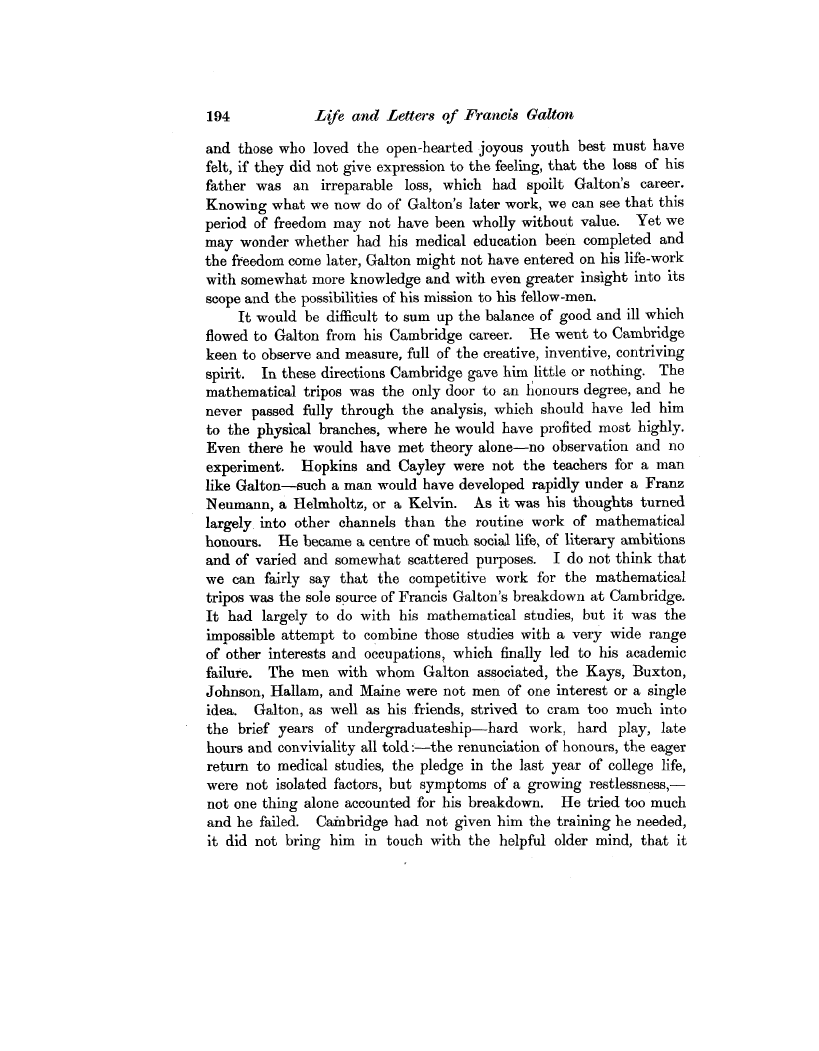194 Life and Letters of Francis Galton
and those who loved the open-hearted joyous youth best must have felt, if they did not give expression to the feeling, that the loss of his father was an irreparable loss, which had spoilt Galton's career. Knowing what we now do of Galton's later work, we can see that this period of freedom may not have been wholly without value. Yet we may wonder whether had his medical education been completed and the freedom come later, Galton might not have entered on his life-work with somewhat more knowledge and with even greater insight into its scope and the possibilities of his mission to his fellow-men.
It would be difficult to sum up the balance of good and ill which flowed to Galton from his Cambridge career. He went to Cambridge keen to observe and measure, full of the creative, inventive, contriving spirit. In these directions Cambridge gave him little or nothing. The mathematical tripos was the only door to an lionours degree, and he never passed fully through the analysis, which should have led him to the physical branches, where he would have profited most highly. Even there he would have met theory alone-no observation and no experiment. Hopkins and Cayley were not the teachers for a man like Galton-such a man would have developed rapidly under a Franz Neumann, a Helmholtz, or a Kelvin. As it was his thoughts turned largely. into other channels than the routine work of mathematical honours. He became a centre of much social life, of literary ambitions and of varied and somewhat scattered purposes. I do not think that we can fairly say that the competitive work for the mathematical tripos was the sole source of Francis Galton's breakdown at Cambridge. It had largely to do with his mathematical studies, but it was the impossible attempt to combine those studies with a very wide range of other interests and occupations, which finally led to his academic failure. The men with whom Galton associated, the Kays, Buxton, Johnson, Hallam, and Maine were not men of one interest or a single idea. Galton, as well as his .friends, strived to cram too much into the brief years of undergraduateship-hard work, hard play, late hours and conviviality all told:-the renunciation of honours, the eager return to medical studies, the pledge in the last year of college life, were not isolated factors, but symptoms of a growing restlessness,not one thing alone accounted for his breakdown. He tried too much and he failed. Cambridge had not given him the training he needed, it did not bring him in touch with the helpful older mind, that it
